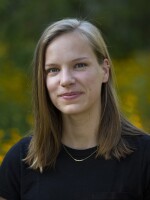LEILA FADEL, HOST:
Today, you can agree to a legally binding document online by just downloading and opening an app. But it wasn't always this way. Emma Peaslee from NPR's Planet Money explains how we got here.
EMMA PEASLEE, BYLINE: It all changed in the '90s, when one court case kind of broke contract law. It started with a grad student and his get-rich-quick scheme.
MATT ZEIDENBERG: Scheme? You make it sound so nefarious.
PEASLEE: That is Matt Zeidenberg. He's now a professor at NYU, but about 25 years ago, he got tangled up in one of the most controversial cases in the history of contracts.
ZEIDENBERG: I just wanted to make a buck. I wasn't trying to create some sort of huge legal precedent.
PEASLEE: So this was Matt's scheme. There were these CDs with the phone book on them, and Matt's like, I'm going to copy those phone numbers and put them on the internet and sell some ads. But he ran into one major problem because, when he opened the box - yes, this was the '90s, and software still came in boxes - this brand-new kind of contract fell out - a shrink-wrap contract. It said, by purchasing and keeping these CDs, you are agreeing not to copy this software. But this wasn't anything like a typical contract. After all, Matt hadn't signed on any dotted line. So he went ahead with his plan, and his website ended up taking off. That was when the software company fought back.
ZEIDENBERG: So they sued me for a lot of money, and that was intimidating. And then the deposition was intimidating. And I didn't really have a - my lawyer was my boss's husband, who'd literally just been admitted to the bar like a week ago.
PEASLEE: Eventually, Matt's case ended up in federal circuit court. And for the first time ever, the judge ruled these kinds of contracts were valid.
NANCY KIM: What Zeidenberg represents is a big break in contract doctrine.
PEASLEE: Nancy Kim is a contract professor at Chicago-Kent College of Law, and she says the judge's reasoning was that the software industry was brand new, and it might struggle to take off without protection. So the judge kind of stretched the definition of what a contract is.
KIM: It opened the door to the idea that, hey, there are other ways that we can enter into a contract.
PEASLEE: This case helped introduce a new idea to contract law, that someone can agree to your contract just by making the contract noticeable enough. And this idea soon opened the floodgates to all these new ways of getting customers to accept contracts. You've probably consented to a bunch of these. Sometimes there's a checkbox. Other times there's a link to some terms of service tucked away somewhere. Those can be valid contracts. It's this game that companies are playing.
KIM: Because, of course, they want to get you through the process as quickly as possible - right? - because it's not a good user experience. It's not supposed to be a good user experience if you're signing a legally binding contract.
PEASLEE: And so today, contracts are less about reading the fine print and more about being able to find the fine print.
Emma Peaslee, NPR News.
(SOUNDBITE OF BOOKER T. & THE M.G.'S' "SUN KING/MEAN MR. MUSTARD/POLYTHENE PAM/SHE CAME IN THROUGH THE BATHROOM WINDOW/I WANT YOU (SHE'S SO HEAVY)") Transcript provided by NPR, Copyright NPR.
NPR transcripts are created on a rush deadline by an NPR contractor. This text may not be in its final form and may be updated or revised in the future. Accuracy and availability may vary. The authoritative record of NPR’s programming is the audio record.


